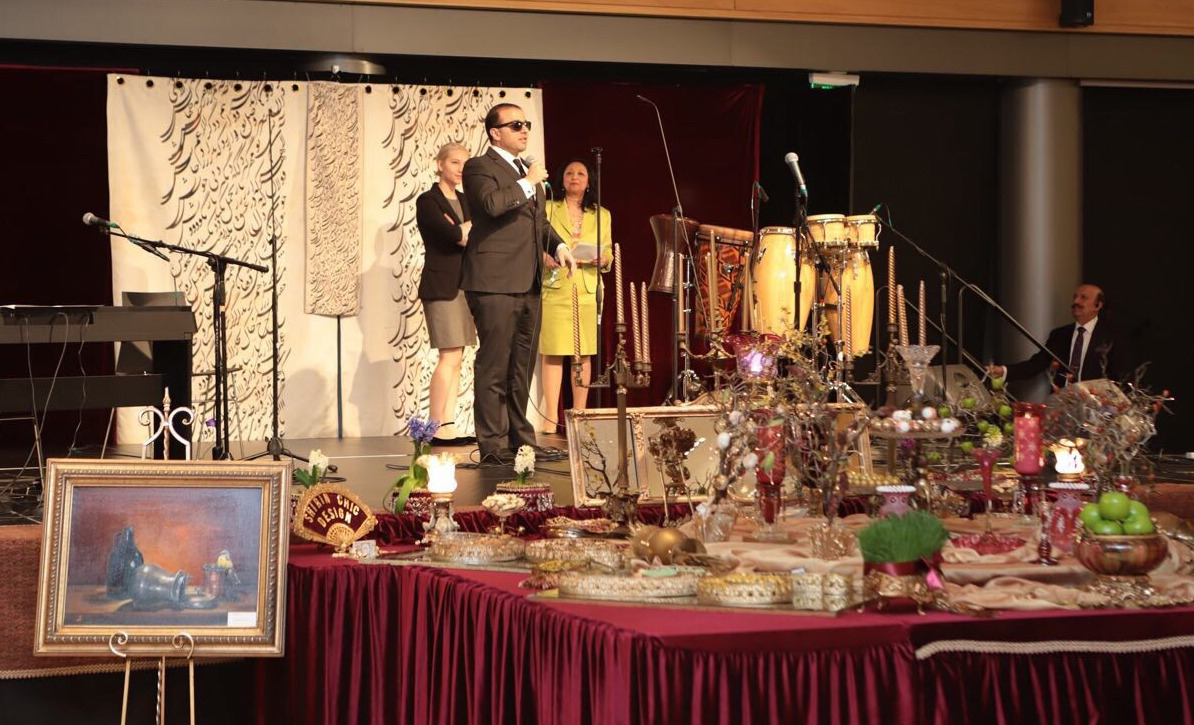The vernal equinox, commonly known as the first day of spring, is the exact moment the sun crosses the celestial equator, equalizing the length of day and night. As many rejoice the end of the winter season, others from various ethnic communities and diverse faith traditions celebrate Nowruz, the start of the Persian New Year.

This year the University of Washington’s (UW) Department of Near Eastern Languages & Civilization (NELC), along with the Persian & Iranian Studies program, funded and supported the UW’s second celebration of Nowruz. The event took place on Friday, March 22nd in the HUB before a crowd of over 650 guests, including 50 performers and volunteers. The program included remarks by Cyrus Habib, lieutenant governor of Washington. UW President Ana Marie Cauce sent a message, which was read by NELC faculty Shahrzad Shams. College of Arts and Sciences Dean Robert Stacey and Humanities Divisional Dean Brian Reed addressed the guests.
Nowruz, which translates to "new day" in English, falls on March 20 in 2019, but its date can vary from year to year. This marks 1398 on the Iranian calendar and – like other new year celebrations or holidays – observances of Nowruz are centered on the spirit of happiness, giving, family, harmony and friendship.
The most common Nowruz tradition involves the ritual of setting the "Haft Seen" table. In English that translates to the seven s's; seven specific items whose names start with the letter 'seen' (the sound “s” in Persian), symbolic of the celebratory time of the year. Items include wheat or barley, sweet pudding, Persian fruit, vinegar, apple, garlic and sumac – and the arrangement of the table represents prosperity, health, productivity and happiness. The beautiful Haft Seen Table was designed and donated by Shirin Barakatein, who designed the Haft Seen table for the UW's first Nowruz Celebration last year.
Persian and Iranian Studies is well known as one of the top programs in promoting the rich diversity of Iranian and Persianate cultures, thanks to the importance given to scholarship and study in the field by UW administration and the support of the UW and Seattle communities.
To continue the advancement of the UW Persian & Iranian Studies program at NELC, and to establish a center for Iranian Studies, the volunteer group Peyvand was formed as a Washington 501-C nonprofit organization. Peyvand is charged with finding ways to generate funding in support of scholarship and research for students and community enrichment events. Contributions have also provided funding for students to attend conferences, public lectures and other celebrations of culture and diversity. Peyvand Nonprofit Organization funded and organized this year's celebration in collaboration with NELC. The organizing committee consisted of Peyvand's board members and community members, with Shahrzad Shams representing the NELC department.
The Persian and Iranian Studies program, and NELC Department wish to thank all those who volunteered to make this year’s Nowruz celebration a meaningful event – and those who continue to support the program, department and Peyvand.
Peyvand Nowruz Organizing Committee:
- Roy Ghazimorad: President & Chair
- Ali Afrassiabi: Treasurer, Cultural Media
- Shirin Barakatein: VP, Haft Seen Table decoration
- Shazi Naini: VP, Ballroom Decoration
- Neda Nassirian: VP, Community Outreach
- Keyhan Rouhani: Secretary, Event Manager
- Mandana Afrassiabi: Volunteer Coordinator
- Hamid Attar: Entertainment & Audio/Visual
- Shahrzad Shams: NELC faculty & Liaison to the Iranian-American Community
More Stories

AI in the Classroom? For Faculty, It's Complicated
Three College of Arts & Sciences professors discuss the impact of AI on their teaching and on student learning. The consensus? It’s complicated.

A Love of Classics and Ballroom
Michael Seguin studied Classics at the UW and now owns Baltimore's Mobtown Ballroom. The two interests, he says, are more connected than they might seem.

Need a break from holiday movies? Try these
For those wanting a break from holiday movies, Cinema & Media Studies faculty and grad students offer suggestions.